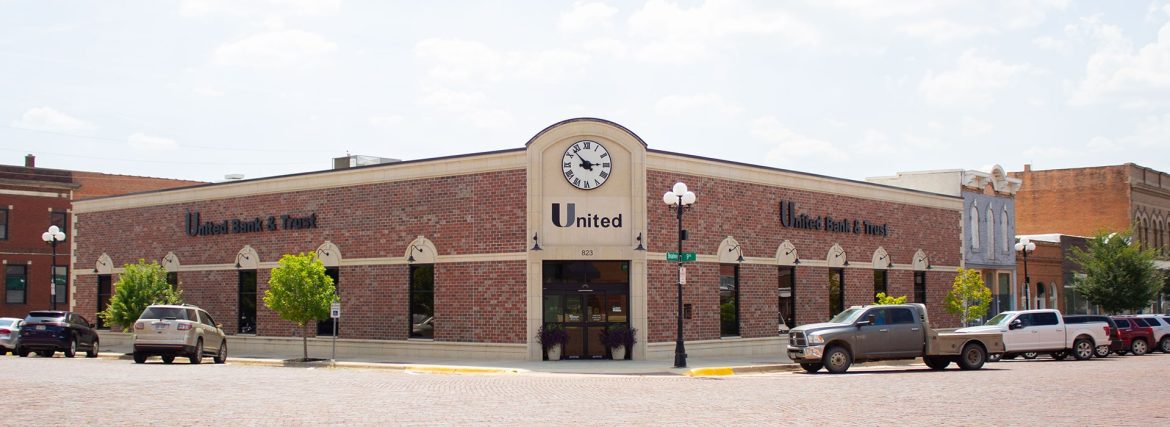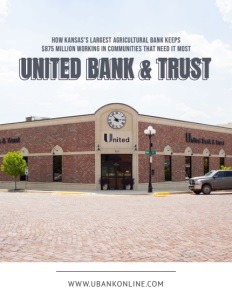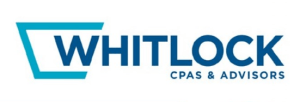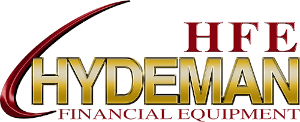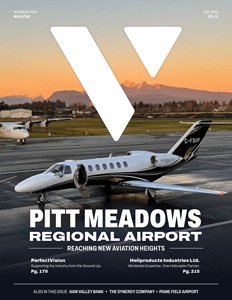How Kansas’s Largest Agricultural Bank Keeps $875 Million Working in Communities That Need It Most
Building Trust on a Simple Principle: Local Deposits Should Fuel Local Economies, not Disappear into Distant Balance Sheets.
In the rolling farmland of northeast Kansas, where towns dot the landscape, Leonard Wolfe has spent 44 years building a different kind of banking institution. When Gold Banc decided to sell some locations in 2003, Wolfe raised the capital to purchase them, founding United Bank & Trust in 2004. Today, the Marysville-based institution has $875 million in assets and is the largest agricultural bank in Kansas, operating in a region where the bank’s roots stretch back to the 1870s. His leadership earned him the Kansas Bankers Association’s 2023 Pioneer Award and the American Bankers Association’s prestigious Bruning Award, recognizing lifetime achievement in agricultural banking. He previously chaired both the Kansas Bankers Association and the Kansas Banking Commission.
“Our bank operates in 8 different communities, and those communities range from towns of 250 people, believe it or not, to about 50,000,” Wolfe explains. “The basic model is that we collect local deposits, and we convert those local deposits into loans within our communities to help the local economies within those communities and counties that we’re in.” The bank operates with 100 employees across Marshall, Nemaha, Clay, Washington, Cloud, Riley, Brown, and Republic counties, making it one of the 20 largest banks in Kansas.
The threat to the community banking model comes from multiple directions. Credit unions, large banks like Wells Fargo operating through agents such as Edward Jones, and particularly the Farm Credit System present ongoing challenges. “Those deposits are being taken out of our communities and there’s no interest from those deposit gathering places to ever reinvest those dollars back into our communities,” Wolfe says. The Farm Credit System, which has provided agricultural financing since 1916, operates as a government-subsidized entity paying no federal or state taxes.
A 21-Year Legacy of Community Investment
United Bank & Trust takes its role as a corporate citizen seriously, translating philosophy into measurable action. Since the bank’s creation in 2004, the institution has contributed more than $4.1 million to the communities it serves. “Our bank typically contributes through local events, sponsorships, and community donations for projects like hospital expansions, playgrounds, things of that nature,” Wolfe says. The contributions flow into tangible improvements that residents can see and use daily. Hospital wings that expand healthcare access, playgrounds where children gather after school, and community facilities that anchor small-town life all bear the fingerprints of the bank’s investment strategy.

In counties where property tax revenue depends partly on local business activity, the bank’s presence matters. Unlike the Farm Credit System, which pays no federal or state taxes despite serving similar markets, United Bank & Trust contributes to the tax base that funds schools, roads, and emergency services. As Vice Chairman of the ABA’s Agricultural Credit Task Force, Wolfe testified before the House Agriculture Committee in 2014 to spotlight these inequities. “They don’t pay any taxes, so there’s nothing that helps support our local communities and schools and road systems or anything else,” he said. He helped spotlight how government-subsidized lenders operate without supporting local infrastructure. His advocacy led to Kansas legislation giving community banks the same tax-exempt status on certain earned interest as farm credit institutions.
Building Financial Literacy and Lasting Relationships
Financial education starts early in United Bank & Trust’s service area. “We sponsor the program in the schools that we’re in, and they work with the local teachers to present a curriculum to everyone; we have many schools, many school districts within our footprint, and we sponsor pretty much all of those schools,” Wolfe says. “I personally go and speak to the local high school here twice a year in classes and talk about personal finances and things like that. And I know all of my presidents do.” Bank staff work daily with customers facing financial challenges, offering guidance without formal counseling credentials. “We work with our customers every single day. We have customers in our bank working with them to work through their financial issues that they have, whether it’s in their home loan or their checking account,” Wolfe explains.
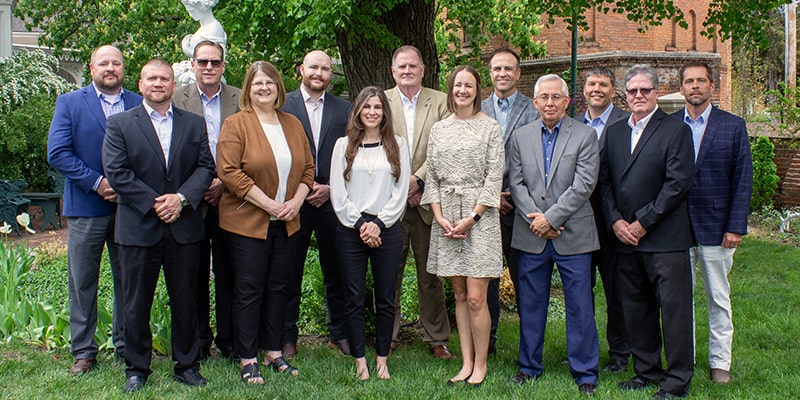
This hands-on approach carries into lending decisions. The bank maintains flexibility that larger institutions cannot match, particularly with agricultural customers who have established long-term relationships. “We rarely have; I can’t tell you the last time we had a foreclosure on a residential real estate loan. We work with our customers to make that work for them,” Wolfe says. The secondary mortgage market shows little interest in home loans under $50,000, yet properties at that price point exist throughout the bank’s territory. “We have homes, believe it or not, in our communities that have a purchase price of $50,000 or less, and there is no other place to go,” Wolfe notes. United Bank & Trust warehouses these loans in its own portfolio, serving markets that larger lenders ignore. Marysville’s median household income of $61,607 means affordable housing remains essential for local workers.
Technology and Efficiency Without Losing the Human Touch
United Bank & Trust operates with remarkable efficiency for an institution approaching $900 million in assets. With roughly 100 employees managing $875 million, the bank achieves nearly $9 million in assets per employee, placing it in the 85th percentile among peer institutions. Technology makes this possible, but Wolfe insists the bank will not sacrifice personal relationships for operational gains.
“We use technology to a large extent,” Wolfe says. “In order to be able to operate in those smaller communities, we have to provide the technology for them to communicate not only with the bank, but with the customers. We have online applications that our customers can use.” The bank provides employees with tools that enhance efficiency rather than replace human judgment. Artificial intelligence is the next frontier, though implementation requires careful consideration. “We have to embrace AI in our industry. I can’t tell you that we’re specifically using it right now, but we’re trying to find ways to use AI, but not to lose our personal touch that we have with our customers,” Wolfe says.
Fraud prevention demands the most urgent technological investment. The bank recently upgraded its fraud detection software after seeing fraud attempts increase. “We’ve seen our industry experience a 300 percent increase in fraud over the last four years, and there doesn’t seem to be an end in sight,” Wolfe notes. “We have several hundred attempts every 24 hours to get into our system, but we don’t let any of them in,” Wolfe says. Nationwide, consumers reported fraud losses exceeding $10 billion in 2023, with check fraud, card fraud, and wire transfer fraud among the primary threats. Wolfe views the battle pragmatically. “That’s been going on since we transported gold on the stagecoach. There were people that pulled a mask up and they robbed stagecoaches to steal the gold that was being transferred from bank to bank. That’s no different today.”
Creating an Ownership Culture
United Bank & Trust operates an Employee Stock Ownership Plan that gives every staff member a stake in the institution’s success, eliminating the need for traditional bonus programs at any level of the organization.
“We do not have a bonus program for anyone, including myself,” Wolfe says. “We feel like that the ESOP fills that role for that, and it also encourages everyone to be on the same team all the time, and we just feel like that works best for us.” The structure creates alignment across all positions and locations. When the bank prospers, employees benefit directly through increased stock value rather than competing for individual performance bonuses. Employee Stock Ownership Plans vest workers with equity stakes that grow over time, turning traditional employees into owner-participants with long-term financial interests in institutional performance.
The approach addresses a persistent challenge in community banking. Retention matters in markets where relationships drive business decisions, and customers often work with the same loan officers and tellers for years. The ESOP model gives employees reasons to stay beyond salary considerations. “We’ve never had issues with that,” Wolfe notes about the compensation structure. Across the banking industry, 91 percent of bankers expressed optimism for the future in 2025 despite ongoing challenges, yet turnover remains a concern for institutions competing with larger banks for talent. United Bank & Trust’s ownership culture provides a differentiator in tight labor markets.
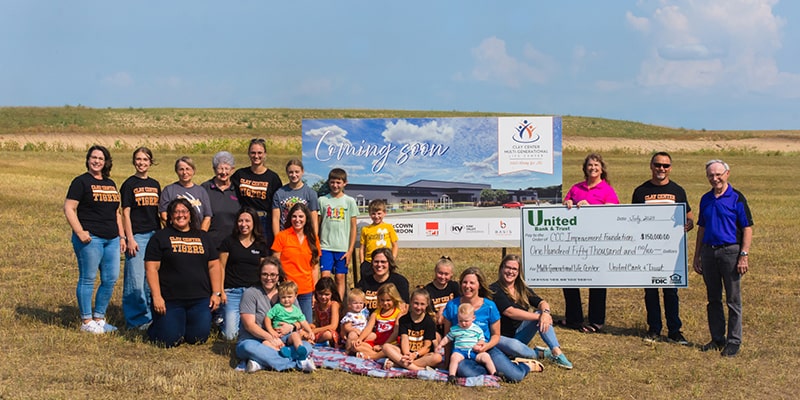
Strategic Expansion in Kansas
United Bank & Trust’s 21-year history shows steady, organic growth, but Wolfe sees opportunities to accelerate expansion through strategic acquisitions. “We’d like to grow. We’ve always been in somewhat of a growth mode. It’s been a slow and mostly organic growth over the 20 years that we’ve been United Bank and Trust, but we’re always looking at opportunities, maybe not once a month, but certainly at least every quarter there’s opportunities to expand or acquire,” Wolfe says. The bank’s board discussed these possibilities at their most recent meeting. “We have 12 percent of the tangible equity capital at the bank level. That’s way more capital than we need, and we’d like to put that money to work by acquiring another bank or two or three locations,” Wolfe explains.
Geographic considerations inform acquisition strategy. All current United Bank & Trust locations sit in contiguous counties, creating operational efficiencies that Wolfe wants to preserve. “Ideally those would be in or near our current footprint just because that’s the most efficient and effective way to do that,” Wolfe says. “I’d be more excited about something that’s in a county that connects to one of our current locations.” The bank operates near the Nebraska border in northeast Kansas, just a few counties from Missouri, but Wolfe prefers staying within state lines. “I’m looking to expand within Kansas primarily,” he says, citing familiarity with state regulators and regulatory processes.
For United Bank & Trust, growth represents more than institutional ambition. Expanding into adjacent Kansas communities means extending the local deposit and lending model that has sustained rural economies for generations. As agriculture faces mounting challenges from rising input costs and commodity price pressures, Wolfe’s expansion plans ensure more communities will have access to a lender that understands farming operations aren’t just numbers on a spreadsheet, but generational commitments that require patient capital and personal relationships.
AT A GLANCE
Who: United Bank & Trust
What: The largest agricultural bank in Kansas, operating 13 branches across seven counties with $875 million in assets
Where: Marysville, Kansas
Website: www.ubankonline.com
PREFERRED VENDORS/PARTNERS
Forvis Mazars: www.forvismazars.us
Forvis Mazars provides audit, assurance, tax, advisory, and consulting services globally with a dedication to delivering an Unmatched Client Experience® to help you prepare for what’s next.
The Whitlock Co.: www.whitlockco.com
Whitlock CPAs & Advisors, with three Missouri locations, provides a full array of audit, tax, information technology, risk management and consulting services to community banks throughout the Midwest. Our team of experienced professionals will tailor our products and services to best serve your organization’s needs, while ensuring excellent customer service.
Hydeman Company: www.hydemanfinancial.com
For over 75 years, the Hydeman Company has been a market leader in financial equipment and software services, upholding a reputation for great customer service. Established in 1948, we sell, implement, and service a wide range of advanced technology, including cash recyclers, ATMs, and custom software. Our commitment to providing solutions is backed by a team of expert, factory-trained technicians.
